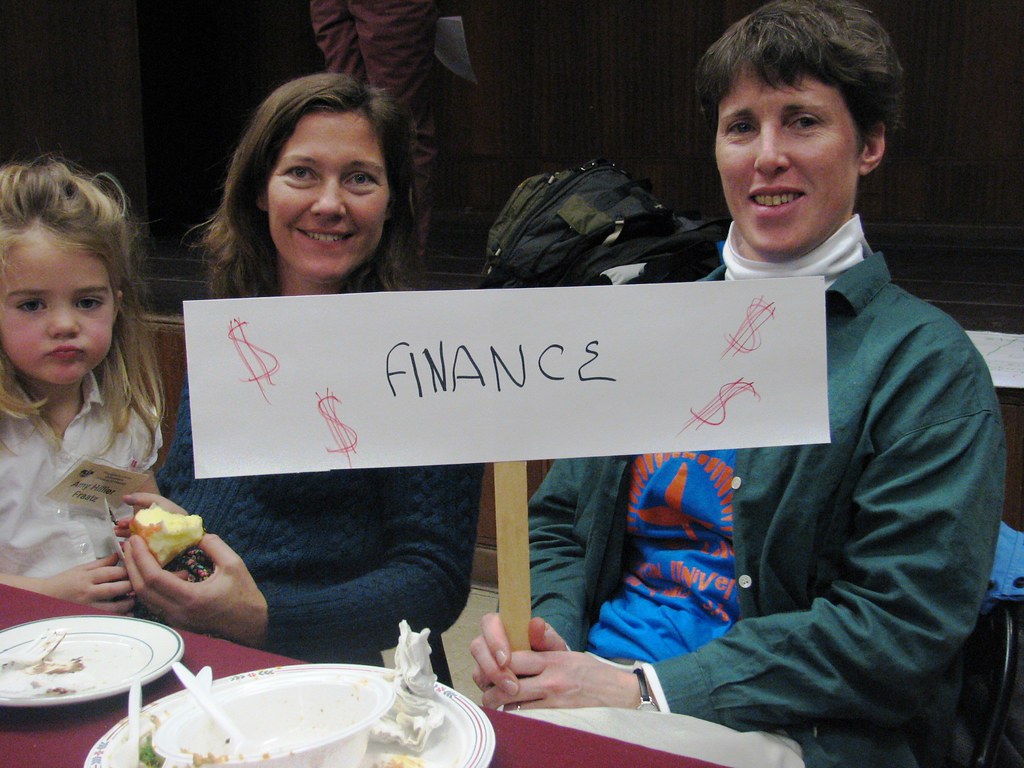 Walking through my Chicago Loop-based office building, I am often struck by the simultaneous layers of experience that exist in one geographical space. There are executives who have never stepped foot on public transit and service staff who commute hours to work each day on increasingly faulty Chicago buses. They eat different food, communicate with different technology and in my building, even use separate elevators. (Higher floors, which have their own elevators, house the more prestigious offices.) They occupy the same physical space, yet their experiences rarely overlap.
Walking through my Chicago Loop-based office building, I am often struck by the simultaneous layers of experience that exist in one geographical space. There are executives who have never stepped foot on public transit and service staff who commute hours to work each day on increasingly faulty Chicago buses. They eat different food, communicate with different technology and in my building, even use separate elevators. (Higher floors, which have their own elevators, house the more prestigious offices.) They occupy the same physical space, yet their experiences rarely overlap.In a city with a history of entrenched inequality, this separation is often exacerbated by factors of race, education, etc., but it generally boils down to a matter of access granted by economic means. Money affords, among other things, certain clothes (which confer a sense of belonging in a workplace) and the ability to eat out (a center of socialization). Your geography of access is limited by your economic reality.
Gender plays a fundamental role in determining the geographies of economic access within Chicago. The phenomenon known as the "feminization of poverty" is not only an international issue (see the Millennium Development Goal #3), but also surfaces in Chicago. Americans already have a tendency to picture young mothers on welfare when they think about poverty, and in Chicago unfortunately that is an accurate picture, with women comprising almost 60% of all those under the poverty line.
Chicago Foundation of Women Executive Director Hannah Rosenthal notes in an NPR interview that a leading cause of women in poverty is the burden of single-parenthood: a third of all women-headed households in Chicago are in poverty. A quick look at the Boys and Girls Club membership demographics reveals that 48% of all members are from families living well below the poverty line, while an overwhelming 72% live with their mother's only.
While this equation (women in poverty=single parent families in poverty) may seem obvious, the solution is certainly not; financing families (often single-parent) in poverty is a much more complex problem requiring a much larger sum. There are additional access challenges- access to safe schools and affordable childcare options are two that readily come to mind. A favorite development blogger of mine, Niti Bahn, writes about how much harder it is to be poor in the US than in the developing world; without common developing world features, such as a large extended family for childcare, raising a family alone in the US is no exception.

In Chicago, the cause of financing availability is led by ShoreBank, an institution famous for its successful focus on community revitalization. Based on the Southside of Chicago, ShoreBank provides banking services to its surrounding community, despite a median family income of only $20,000. (They also, incidentally, provided Yunus and his fledgling Grameen Bank startup advice in the eighties for him to export back to his native Bangladesh. How's that for microfinance street cred? I could go on and on about this company- visit their website and read about them. Now! They are a triple bottom-line company, as well as being minority- and women- led. But I digress...)
Last year, Shore Bank launched a program to refinance subprime mortgages, saving many Chicago families (including many single-parent families) from foreclosure. Often, their community development loans go to small, female-owned businesses allowing them to escape from potential failure. Their community development credits often focus on lending to “credit-challenged” women who would be ignored by other commercial banks.
In the interview referenced above, Hannah Rosenthal laments that few studies of poverty use a gender lens in their analysis. This underscores the importance of smart institutions such as Shore Bank, who work to bring attention to gendered poverty and to alleviate the resulting limited access to resources.
Let’s hope in this unfavorable banking climate that Shore Bank is able to continue its work to transform Chicago’s economic landscape!
Note: I was deliberately focusing on gender in this post, though certainly many of the factors pointed out as problems of gender have racial roots as well. (Photo from Flickr user hanneorla)
(Photo from Flickr user Edu-Tourist)

2 comments:
Hannah Rosenthal cries for that a small number of studies of poor quality use a sex lens in their study. This is not a good point for them. It will make them week.
Hi Lisa,
Digress all you want on ShoreBank! We at ShoreBank are really proud of the impact our mission has made on our communities and on you! Not only that, but our continuous positive growth helps to ensure that we do not plan on letting anything prevent us from continuing to transform Chicago's economic landscape. On that thread, I recommend researching our high yield savings product (shorebankdirect.sbk.com). It is 3.50%* APY, $1 minimum deposit, no time limit. These deposits help us to fund our community development loans. It is great to think that you can make a great interest return AND help change the world. I'd love to hear your thoughts on our blog as well: http://shorebankvoices.swirlspace.net/blog/. Thanks for being a fan!
Sarah Ewing
Online Channel Manager
ShoreBank
Post a Comment